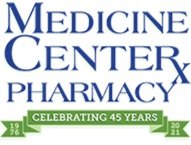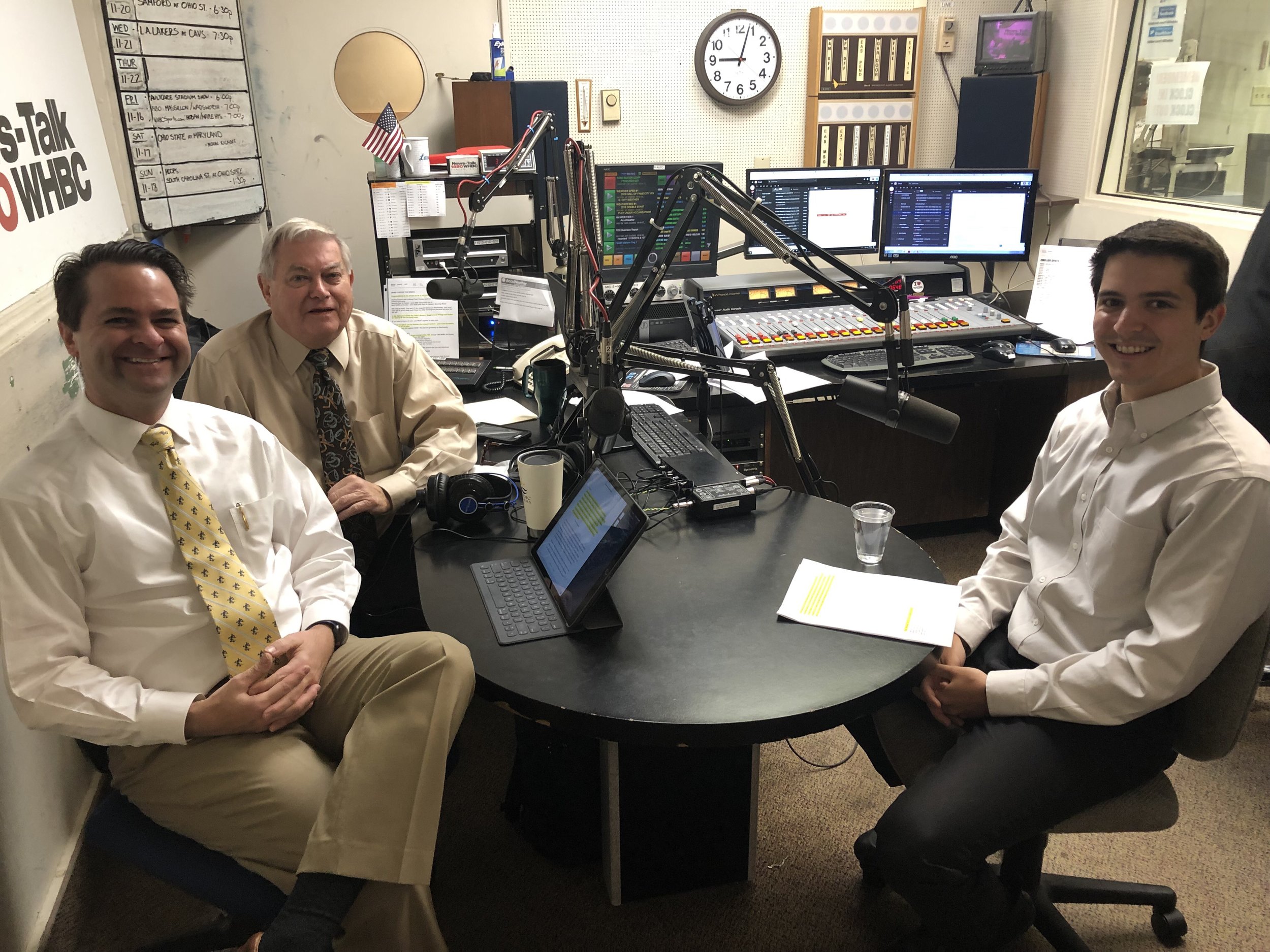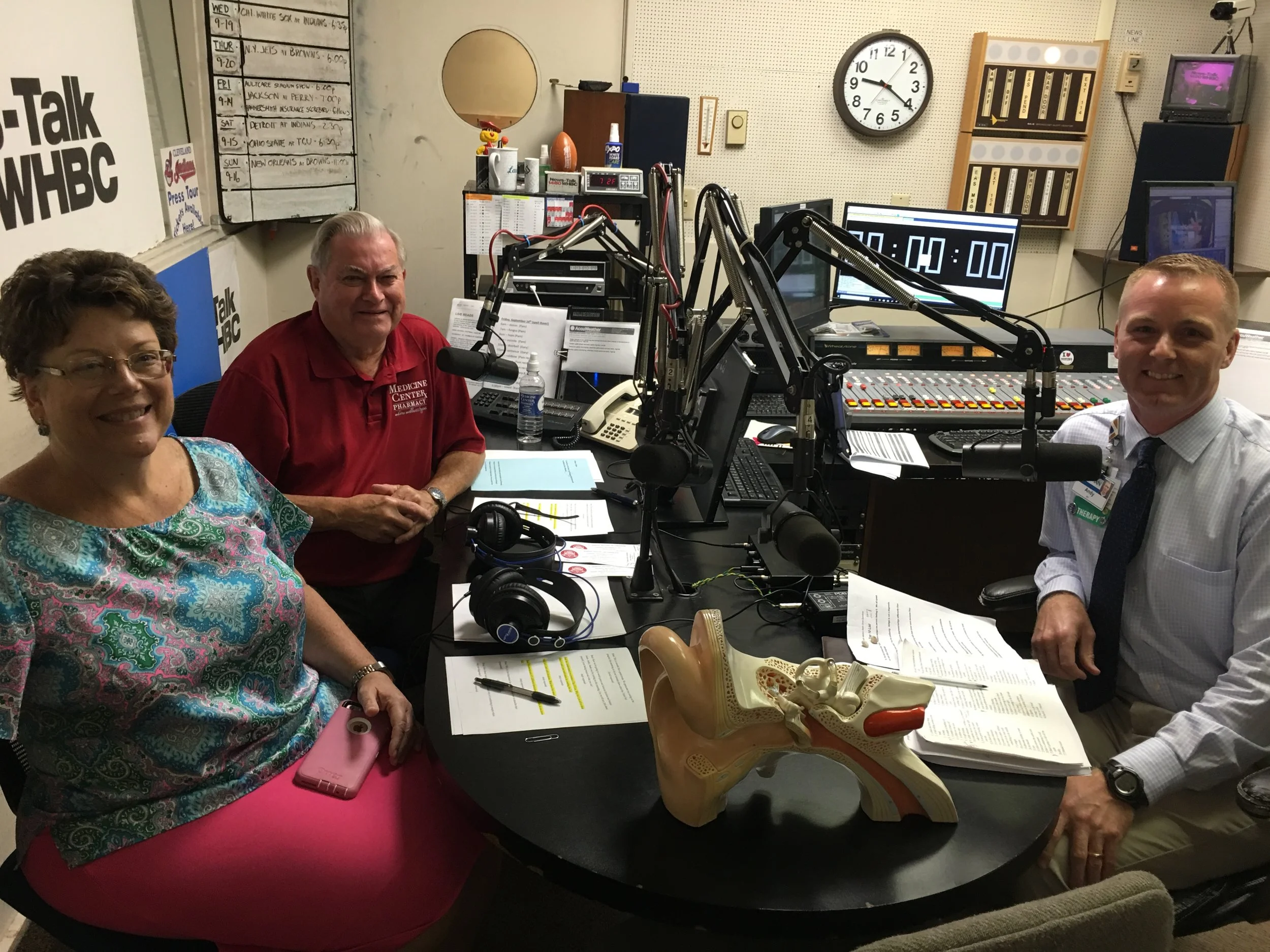Driving safely during winter months can be a challenge for all drivers – this includes teens, parents, seniors and anyone who gets behind the wheel. When the snow and freezing rain comes, it often causes many problems for those of us who must be out on the road. According to the National Highway Traffic Safety Administration, 17 percent of all crashes occur during winter months. So, today we’re going to learn some winter weather driving safety tips—like what to do when your car or truck is sliding as well as how to prepare our vehicles before we head out on the roads. Julie Dominik, occupational therapist and certified driver rehabilitation specialist from Mercy Medical Center joins us to share tips to help keep you safe.
The American Heart Association recently released new cholesterol guidelines, and the results have shed light not only on the actual numbers, but also other risk factors including race. The new guidelines found that race and ethnic backgrounds can indicate risk factors for heart disease in specific populations. Overall, nearly one out of every three American adults has high levels of LDL cholesterol—the "bad" cholesterol that can build up along artery walls and lead to higher chances for heart disease and stroke. Today we learn about the new guidelines, risk factors and give you information to live a healthier life.
Dr. Justin Dunn, cardiologist and president-elect of the Akron American Heart Association’s board of directors (right) talks about the new cholesterol guidelines.
It is cold outside! Whether you’re taking the kids sled riding, hitting the slopes for fun or even just clearing your sidewalks, you’ll want to consider safety. Some health issues that are top of mind include frostbite, hypothermia, concerns with shoveling snow, falling and others. This segment features Mercy Medical Center’s David Morris, injury prevention and outreach coordinator, who discusses some of these issues and shares tips from the trauma experts.
Breast health is important for both women and men. According to the nonprofit agency, breastcancer.org, about 1 in 8 U.S. women will develop invasive breast cancer over the course of her lifetime, and a man’s lifetime risk of breast cancer is about 1 in 1,000.
Regardless of your age, breasts typically change throughout the many phases of life. Understanding your body – what is normal and what isn’t – can be the key to treatment when something out of the ordinary may be found. In this Health Matters program Aultman Hospital’s Dr. Sabrina Shilad talks about breast treatment, surgery options and risk factors to help you stay healthy.
Dr. Sabrina Shilad joins the Health Matters program to talk about breast health with pharmacists, Brad White and Paul White.
Holiday weight gain is real. Depending on what study you read, the average weight gain is between 5 and 10 pounds. Now that we’ve enjoyed holiday feasts and lots of delicious baked goods, we still have New Year’s parties and other holiday gatherings to look forward to. They may be fun, but the parties continue to offer delicious foods, drinks and extra calories. As we inch closer to 2019, it’s time to set our resolutions for healthier and happier living. In this segment, we look at how we can avoid extra, unwanted calories, talk about portion control and help you get ready for the New Year with Mercy Weight Management’s Registered Dietitian Sereen Zawahri Krasuna.
Registered Dietitian Sereen Zawahri Krasuna from Mercy Weight Management shares tips on food substitutions, portion size, healthier eating and fun exercise options.
When the body recognizes an infection or something harmful, our immune system reacts and becomes inflamed. This inflammation attacks the bacteria or threat, which can include infection, for example. However, sometimes the inflammation can last too long. The result can be rheumatoid arthritis, gout and other inflammatory diseases. About 1.5 million people in the United States have rheumatoid arthritis, and out of that number nearly three times as many women have the disease compared to men, according to the Arthritis Foundation. Tune in to hear Mercy Medical Center’s Dr. Alexander Hannan, rheumatologist, discuss inflammatory conditions like gout, rheumatoid arthritis and more.
Dr. Alexander Hannan, rheumatologist from Mercy Medical Center discusses inflammatory conditions on Health Matters.
Dr. John Sutton from My Community Health Center (right) talks with Brad and Paul about medical services available for the under-served population of Stark County.
Patients with diabetes understand the challenge of managing the disease during everyday living. Healthy eating, physical activity, regular blood monitoring, taking medication and reducing the risk of complications are all necessary. Sometimes it can be overwhelming, but a diabetes educator can help. In this program we discuss blood sugar ranges, how to treat them, diet, exercise and more with Aultman Hospital’s Diabetes Educator Mechelle Metzgar.
Brad and Paul White talk about strategies for healthy management of diabetes with Mechelle Metzgar, diabetes educator.
According to the Hearing Loss Association of America, statistics indicate the average person doesn’t seek treatment for at least seven years from the onset of when they begin having hearing issues. Hearing loss can affect balance, relationships, ability to understand and more. In this program, Aultman Hospital’s Mitch Polen, audiologist, explains vertigo, hearing loss, hearing aids and more.
If you deal with the symptoms of pelvic floor dysfunction (PFD), you’re likely facing incontinence issues, perhaps bowel issues and others. You may find it difficult talking about these problems even with a healthcare provider. However, providers – especially urogynecologists – are used to talking about these problems. Today we’re going to learn about symptoms of PFD, endometriosis and a host of treatment options including laparoscopic and minimally invasive surgery with Dr. Maurice Chung, Director of Mercy Center of Endometriosis, Pelvic Pain & Urogynecology at Mercy Medical Center.
Dr. Maurice Chung, Director of Mercy Center of Endometriosis, Pelvic Pain & Urogynecology discusses endometriosis, pelvic floor dysfunction and more.
Most people recognize podiatry as the treatment of feet, although it’s a diverse specialty and covers many aspects. In addition to general foot care, podiatrists specialize in foot and ankle trauma, reconstruction, sports medicine and wound care. A focus of podiatry care includes diabetes-related foot care as well as prevention. Today we will explore treatments, conditions and find out why the feet are vulnerable with Dr. Natalie LaScola, podiatrist from Aultman Medical Group.
Brad and Paul white discuss a variety of foot care issues with Dr. Natalie LaScola on Health Mattes.
October is Breast Cancer Awareness Month, and we are working with Mercy Cancer Center to raise awareness about breast cancer health. According to the National Breast Cancer Foundation, when detected early, and is in the localized stage, the 5-year relative survival rate is 100%. Early detection is the key to good health and includes self-breast exams, regular clinical exams with your physician and mammograms. In this program, we explore some myths associated with mammograms, diagnosis, treatment options and more.
L-R: Brad and Paul White discuss the Aultman Hospital Campus and surrounding neighborhood revitalization project with Aultman Health Foundation’s Liz Edmunds and Kevin Pete.
If you’re like most people, you have probably had a medical emergency at some point in life. Perhaps you woke up in the middle of the night with stomach pain, twisted your ankle doing something around the house and later find your ankle is swollen and can’t walk, or maybe even a child has spiked a fever outside of the pediatrician’s office hours. When a situation like any of these occurs, knowing the difference between Statcare and the emergency department and where you should go could save your life. Today we’re going to talk about treatment, costs and more that are associated with each type of care facility with Mercy Medical Center’s Barbara Frustaci, administrative director ambulatory services.
Pharmacists and hosts, Brad White and Paul White talk with Mercy Medical Center’s Barbara Frustaci about treatment options at Statcare and Emergency Departments.
According to the Sepsis Alliance, Sepsis has been named the most expensive in-patient cost in American hospitals, and in 2014 alone, averaged more than $18,000 per hospital stay. September is Sepsis Awareness Month, and Mercy Medical Center’s Dr. Frank Kaeberlein and Tracey Major, manager medical affairs join the Health Matters program to talk about the dangers and cost associated with this medical condition.
L-R: Pharmacists Brad and Paul White discuss Sepsis Awareness Month with Mercy Medical Center’s Tracey Majors and Dr. Frank Kaeberlein.
If you have low back pain, you are not alone. About 80 percent of adults have experienced low back pain at some point during their lifetimes. It’s the most common cause of job-related disability and a leading contributor to missed work days, according to the National Institute of Neurological Disorders and Stroke. In fact, more than a quarter of adults have reported that they have experienced low back pain during the past three months. Dr. David Gutlove, medical director at Mercy Pain Management Services discusses symptoms, treatment options and more.
Dr. David Gutlove (right) discusses low back pain symptoms, treatment, exercise and more on Health Matters with pharmacists Brad White and Paul White.
Balance problems can make you feel dizzy, often making you feel as if the room is spinning, or you’re unsteady or lightheaded. You might even feel like you're going to fall - whether lying down, sitting or standing.
Many body systems — including your muscles, bones, joints, vision, the balance organ in the inner ear, nerves, heart and blood vessels — must work normally for you to have normal balance. When these systems aren't functioning well, you can experience balance problems.
Listen in to hear Andy Beltz, physical therapist from Aultman Hospital talk about balance issues and dizziness.
L-R: Medicine Center Pharmacy’s Executive Vice President Nancy Wharmby and Pharmacist Paul White talk with Andy Beltz, physical therapist from Aultman Hospital.
Blindness is one of the most feared disabilities. Although it is believed that half of all blindness can be prevented, the number of people in America who suffer from vision loss continues to increase. The leading causes of vision impairment and blindness in the U.S. are primarily age-related eye diseases. The number of Americans at risk for age-related eye diseases is increasing as the baby boomer generation ages. These conditions, including age-related macular degeneration, cataract, diabetic retinopathy and glaucoma, affect more Americans than ever before. Disturbingly, the number of Americans with age-related eye disease and the vision impairment that results is expected to double within the next three decades.
Hosts Brad White, R. Ph. and Paul White, R. Ph. talk with Dr. Paul Turgeon from Eye Centers of Ohio.
L-R: Health Matters broadcasts live from the MAPS Museum. Paul White, R.Ph. talks with Ted Mathies, Vietnam veteran and medic, and Reed Kimball, Colonel USAR Retired and director of education for the MAPS Museum, with Brad White, R. Ph.
The high school football season kicks off, and along with it comes many types of sports injuries. Especially concerning to athletes, parents and coaches are head injuries and concussions. According to the Centers for Disease Control, an estimated 300,000 head injuries occur among high school athletes each year.
In this segment of Health Matters, we talk about the impact of head injuries and other traumatic sports injuries with sports medicine specialist, Dr. James Goff from Cleveland Clinic Union Hospital, who has served as team doctor for several high schools and universities.
L-R: Pharmacists and hosts, Brad White and Paul White discuss concussions, head injuries and other sports-related injures with Dr. James Goff, sports medicine specialist from Cleveland Clinic Union Hospital.





















